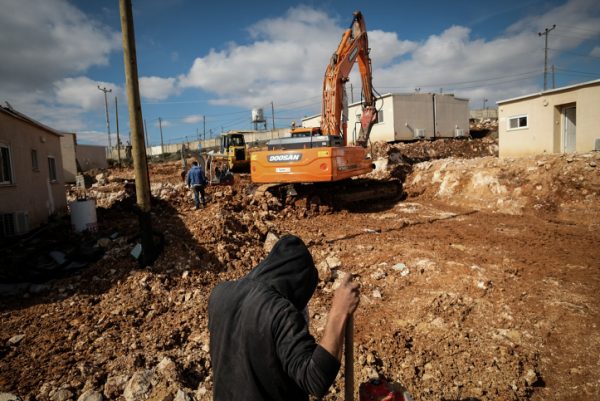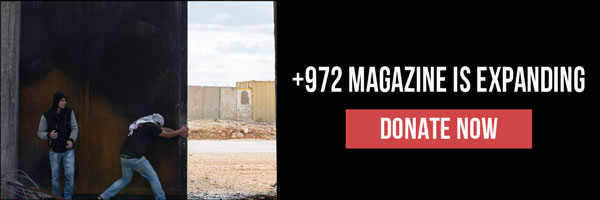Right-wingers like Miri Regev and BDS activists have come to the same conclusion: that after 50 years of occupation, it is impossible to separate the economy of the settlements from Israel’s economy as a whole.

The Israeli government is in the midst of an internal debate that mirrors a debate in left-wing and progressive circles worldwide: whether to boycott only the settlements or the Israeli economy as a whole.
Just last week Prime Minister Benjamin Netanyahu approved yet another economic agreement with the European Union, wherein the Israeli government de-facto agrees to boycott Jewish settlements in the occupied territories (or at least to cooperate with such a European boycott), by allowing only businesses within Israel proper to apply for grants for economic partnerships with businesses in European states.
The EU has been consistent about its policy of recognizing the Green Line, the pre-1967 Israeli border, as the sole boundary of Israeli legitimacy. On one side stands a sovereign state and a welcomed partner in trade and diplomacy; on the other, an illegitimate military occupation that violates international law. In the eyes of the EU and other supporters of selectively boycotting the settlements, these two sides of the Green Line are ostensibly unrelated. This is the distinction that Netanyahu, and his government, accepted (once again) by signing the agreement.
Or at least it was until Minister of Culture Miri Regev turned the tables. In a statement opposing the agreement, Regev wrote:
My fundamental position is that the Israeli government should reject agreements from the outset that require us on a de facto basis to boycott portions of the homeland or populations in the Golan Heights, Jerusalem, or Judea and Samaria [the West Bank].
Regev’s statement has put the entire deal on hold. If Regev succeeds in preventing the agreement, the result would be the total exclusion of Israel from the European grants program.
In light of the rift between Europe and the U.S., the latter having abandoned any pretense of being an “honest broker”, it is highly unlikely that the EU would drop the article excluding settlements. The agreement, then, would go unsigned, and Israeli citizens would be denied access to tens of millions of Euros in grants. Regev, in the name of Israeli sovereignty over all the land between the river and the sea, insists on blurring the distinct between the settlements and Israel proper. By doing so, she marks the entire Israeli economy as illegitimate, not just the portion of it located over the Green Line.
Regev’s argument mirrors the claim often made by BDS activists: After over fifty years of military rule, can one truly imagine that there are two completely separate economies on both sides of the Green Line?
When all Israeli banks offer mortgages and loans for building houses and starting businesses in settlements; when public transportation companies operate lines that cross the Green Line on a daily basis; when the currency, infrastructure, road system and customs are shared on both sides of the separation barrier; when wines produced within Israel proper are made with settlement grapes grown on stolen land; when water and stone from the West Bank are used to quench thirst and build houses in Israel; when Israeli cellular companies have antennas offering service throughout occupied territories and private companies from high-tech to advertising offer their services across the Green Line – is there still any point in making the distinction?
BDS campaigners says there isn’t: that the Israeli economy as a whole profits from the occupation. Culture Minister Miri Regev might not put it in exactly those words, but she accepts the general principle: there is only one economy between the river and the sea, and there’s no dividing it – even if that means maintaining control of the occupied territories at the cost of a total boycott of Israel.
A version of this article first appeared in Hebrew at Local Call. Read it here.



